Disconnect from Technology and Try Some Screen-Free Hobbies
This post contains affiliate links, which means I may earn a small commission at no extra cost to you if you purchase through them. I only recommend products I truly love and think you’ll vibe with too. Check out our privacy policy and disclosure here.
When you disconnect from technology, you give your mind a chance to breathe and reset in ways that scrolling through social media simply can’t provide.
Most of us spend hours each day staring at screens—checking emails, watching videos, or mindlessly browsing our phones.
Meanwhile, our creativity sits dormant, waiting for us to step away from the digital world and rediscover what it means to truly unwind.
If you’re feeling overwhelmed by constant notifications, struggling with digital fatigue, or simply craving a more balanced lifestyle, you’re not alone.
Millions of people are realizing that our always-connected culture might be doing more harm than good.
Fortunately, there’s a simple solution that doesn’t require expensive therapy or drastic life changes. It’s called SCREEN-FREE HOBBIES.
These activities offer something our devices can’t—genuine relaxation, skill development, and the satisfaction that comes from creating something with your own hands.
Plus, they’re often more affordable than you might think, making them accessible to nearly everyone.
@lindseymarieofficial Please tell me your screen time is as bad as mine 🤦🏻♀️ I think I need someone to put a limit on it for me 🤪 #screentime #screens #phone #digital #iphone #momsoftiktok #moms #momtok #sahm #sahmlife #sahmsoftiktok ♬ original sound - Lindsey Marie | Mom of 4
How I Realized Technology Was Stealing My Present Moments
Last month, I was sitting on my couch with my husband watching our favorite show. At least, that’s what I thought I was doing.
Instead, I found myself scrolling through Instagram Reels and TikTok while the TV played in the background.
My hubby made a funny comment about something happening on screen, and I had to ask him to repeat it because I wasn’t even paying attention.
That moment hit me harder than I expected. Here I was, spending time with someone I love, yet I was completely somewhere else mentally.
It wasn’t the first time either.
I’d been doing the same thing during dinner conversations, while laying in bed, and even during what was supposed to be my personal self-care time.
A few days later, something even more eye-opening happened.
My husband was telling me about a difficult situation at his place of work, and I could see he really needed support. Yet halfway through his story, I felt that familiar urge to check my phone.
Even during this important conversation, I kept feeling the need to hurry up and answer an email or two while he was talking. I managed to resist, but the fact that I even felt that pull while someone I cared about needed my undivided attention was a wake-up call that hurt.
That’s when it really hit me—I wasn’t just missing out on entertainment or relaxation. I was losing my ability to be emotionally present for the person who mattered most.
My constant need for digital stimulation was actually rewiring my brain to seek distractions instead of connections.
Right then, I realized something had to change.
Technology wasn’t just taking up my time—it was stealing my ability to be present for the moments that actually bring joy and connection to my life.
That’s when I started looking for ways to disconnect and rediscover what it felt like to be fully engaged with the world around me.
Why Your Brain Needs a Break from Screens
Before jumping head first into specific hobbies, it’s important to understand why stepping away from technology matters for your well-being.
Research shows that excessive screen time can lead to digital eye strain, poor sleep quality, and increased anxiety levels.
Additionally, constant exposure to blue light can disrupt your natural sleep patterns, leaving you feeling tired even after a full night’s rest.
When we’re always connected, our brains never get a chance to enter the relaxed state that promotes creativity and problem-solving.
Instead, we’re stuck in a cycle of constant stimulation that can actually make us feel more stressed and less productive over time.
Furthermore, screen-free activities engage different parts of your brain than digital entertainment.
They often require focus, patience, and fine motor skills—all of which help keep your mind sharp as you age.
It’s no wonder that many people report feeling more centered and peaceful after spending time with hands-on hobbies.
Creative Hobbies That Disconnect from Technology
Drawing and Painting
Art supplies don’t have to cost a fortune to get started. A simple sketchbook and some basic pencils can provide hours of entertainment and stress relief.
Drawing helps improve your observation skills while giving you a creative outlet that’s completely your own.
Watercolor painting is another excellent option that requires minimal supplies.
Unlike digital art, traditional painting forces you to work with imperfections and happy accidents, which can be incredibly freeing.
Many beginners find that painting becomes a form of meditation, allowing them to focus entirely on the present moment.
The beauty of these hobbies lies in their simplicity.
There’s no need to worry about software updates, internet connections, or battery life. Just you, your materials, and your imagination working together to create something unique.
Writing and Journaling
Putting pen to paper has therapeutic benefits that typing on a keyboard simply can’t match.
The physical act of writing engages your brain differently, often leading to deeper thoughts and more meaningful self-reflection. Moreover, keeping a handwritten journal creates a tangible record of your thoughts and experiences.
Creative writing, whether it’s poetry, short stories, or even letters to friends, allows you to express yourself without the pressure of immediate feedback or social media metrics. You can write purely for the joy of it, without worrying about likes, shares, or comments.
Many people find that writing helps them process emotions and work through problems more effectively than digital alternatives.
The slower pace of handwriting gives your mind time to really think through what you want to say.
Active Hobbies to Help You Disconnect from Technology
Gardening
Getting your hands dirty in the garden provides a perfect antidote to our increasingly digital world.
Gardening connects you with nature while teaching patience and responsibility. Plus, you’ll have fresh herbs, vegetables, or beautiful flowers to show for your efforts.
Even if you don’t have a yard, container gardening or indoor plants can provide similar benefits.
The act of nurturing something living gives you a sense of purpose that’s hard to find in digital entertainment. Additionally, gardening provides gentle exercise and fresh air, both of which can improve your physical and mental health.
The seasonal nature of gardening also helps you reconnect with natural rhythms that our technology-driven lives often ignore. You’ll start noticing changes in daylight, temperature, and weather patterns in ways that matter for your plants’ well-being.
Hiking and Nature Walks
Sometimes the best way to disconnect is to literally get away from the places where screens dominate our lives.
Hiking offers exercise, fresh air, and the chance to observe wildlife and natural beauty that no screen can truly capture.
You don’t need expensive gear or mountain trails to benefit from walking in nature. Local parks, nature preserves, or even tree-lined neighborhoods can provide the mental reset you’re seeking.
The key is to leave your phone behind or at least keep it tucked away except for emergencies.
Walking without digital distractions allows your mind to wander freely, often leading to creative insights or solutions to problems you’ve been pondering.
Many people find that their best ideas come during these quiet moments in nature.
Hands-On Crafts That Disconnect from Technology
Knitting and Crocheting
These traditional fiber arts have experienced a resurgence in recent years, and for good reason.
The repetitive motions of knitting or crocheting can be incredibly soothing, almost like meditation in motion. Not to mention, you’ll create useful items like scarves, blankets, or gifts for loved ones in the process.
Learning these skills connects you to generations of crafters who created beautiful, functional items long before machines took over. In my opinion, there’s just something deeply satisfying about making something useful with just yarn and simple tools.
Online tutorials can help you get started, but once you learn the basics, you can work entirely offline.
Many knitters and crocheters find that working with their hands while listening to music or podcasts creates the perfect balance of productivity and relaxation.
Cooking and Baking
Preparing food from scratch engages all your senses in ways that ordering takeout or microwaving frozen meals never could.
The smell of fresh herbs, the texture of bread dough, and the satisfaction of creating something delicious make cooking a truly immersive experience.
Baking, in particular, requires precision and patience that can be wonderfully grounding.
Unlike digital activities where you can easily undo mistakes, baking teaches you to work carefully and accept imperfections as part of the process.
Cooking for others also provides social connection that’s becoming increasingly rare in our digital age.
Sharing a home-cooked meal creates bonds and memories that can’t be replicated through screens.
Mindful Activities to Disconnect from Technology
Reading Physical Books
While e-readers have their place, there’s something special about holding a physical book and turning actual pages.
Reading without screens eliminates the temptation to check notifications or browse other apps, allowing you to fully immerse yourself in the story or information.
Physical books also don’t require charging, won’t break if you drop them, and can be shared easily with friends and family.
Libraries (yes, they still exist) offer access to thousands of books for free, making reading one of the most budget-friendly hobbies available.
The act of reading regularly improves focus and concentration—skills that excessive screen time can actually diminish.
Many people find that returning to physical books helps them read more deeply and retain information better.
Meditation and Yoga
These ancient practices offer powerful ways to disconnect from the constant chatter of digital life.
Meditation doesn’t require any equipment beyond a quiet space and a few minutes of your time. Regular practice can reduce stress, improve focus, and increase overall well-being.
Yoga combines physical movement with mindfulness, providing both exercise and mental relaxation. You can practice at home with just a yoga mat, or join classes to connect with others who share your interest in mindful movement.
Both activities teach you to be present in the moment—a skill that’s increasingly valuable in our distraction-filled world.
They also provide tools for managing stress and anxiety that you can use throughout your daily life.
Social Hobbies That Help You Disconnect from Technology
Board Games and Puzzles
Gathering around a table for board games or working on jigsaw puzzles brings people together in ways that online gaming simply can’t match.
These activities encourage face-to-face conversation, strategic thinking, and friendly competition without the need for screens.
Board games have evolved far beyond childhood classics, with options available for every interest and skill level. Many games encourage cooperation rather than competition, helping to build stronger relationships with family and friends.
Jigsaw puzzles offer a different kind of satisfaction—the meditative process of finding pieces that fit together perfectly. They can be done alone or with others, and completing a challenging puzzle provides a sense of accomplishment that’s hard to find in digital achievements.
Learning Musical Instruments
Making music engages your brain in complex ways that listening to digital music cannot.
Learning an instrument requires focus, practice, and patience—all qualities that can improve other areas of your life as well.
You don’t need expensive instruments to get started. Ukuleles, harmonicas, or even simple percussion instruments can provide entry points into music-making.
The goal isn’t perfection but rather the joy of creating sounds and rhythms with your own hands.
Playing music with others creates social bonds and shared experiences that are deeply rewarding. Even if you’re just strumming along to songs around a campfire, making music together builds connections in ways that sharing digital content never could.
Getting Started with Screen-Free Hobbies
Beginning a new hobby can feel overwhelming, but the key is to start small and choose activities that genuinely interest you.
Pick one or two hobbies that appeal to you rather than trying to do everything at once, because this approach helps you develop skills gradually without feeling scattered or pressured.
Set realistic expectations for yourself. Most hobbies require time to develop skills and see results.
Instead of comparing your early efforts to experts, focus on the enjoyment and relaxation these activities provide.
Remember, the goal is to disconnect and recharge, not to become a professional.
Create designated times for your screen-free activities.
This might mean setting aside an hour each evening, dedicating weekend mornings to your hobby, or even just taking a few minutes during lunch breaks. Consistency matters more than duration when building new habits.
Consider joining local groups or classes related to your chosen hobbies. This provides social connection, learning opportunities, and accountability that can help you stick with your new activities.
Many communities offer beginner-friendly options for various crafts, sports, and creative activities.
Living in our hyper-connected world doesn’t mean you have to be constantly plugged in. Screen-free hobbies offer a path back to activities that nourish your soul, challenge your mind, and connect you with others in meaningful ways.
Whether you choose creative pursuits like drawing and writing, active hobbies like gardening and hiking, or mindful practices like reading and meditation, you’re investing in your well-being.
The beauty of these activities lies not just in what they create or accomplish, but in how they make you feel.
They offer space to breathe, think, and simply be human in ways that our digital devices cannot provide.
Your mind craves this kind of engagement, and your stress levels will thank you for providing it.
Starting today, choose one screen-free hobby that sparks your curiosity.
Give yourself permission to be a beginner, to make mistakes, and to enjoy the process rather than focusing solely on results.
You might be surprised by how much you’ve been missing in the offline world—and how much more balanced and peaceful you feel when you give yourself regular breaks from technology.
Give These Relevant Product Suggestions a Try:



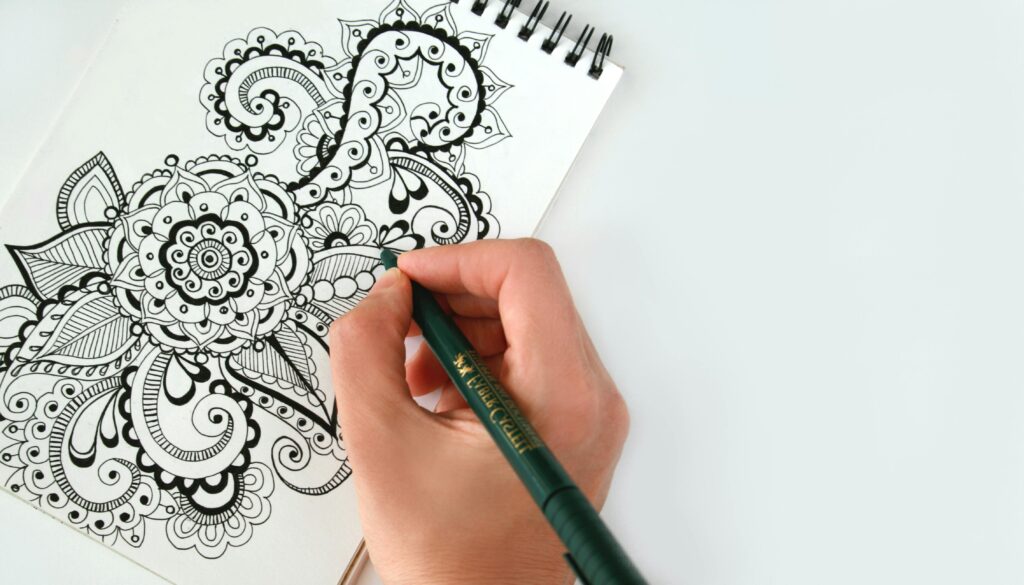


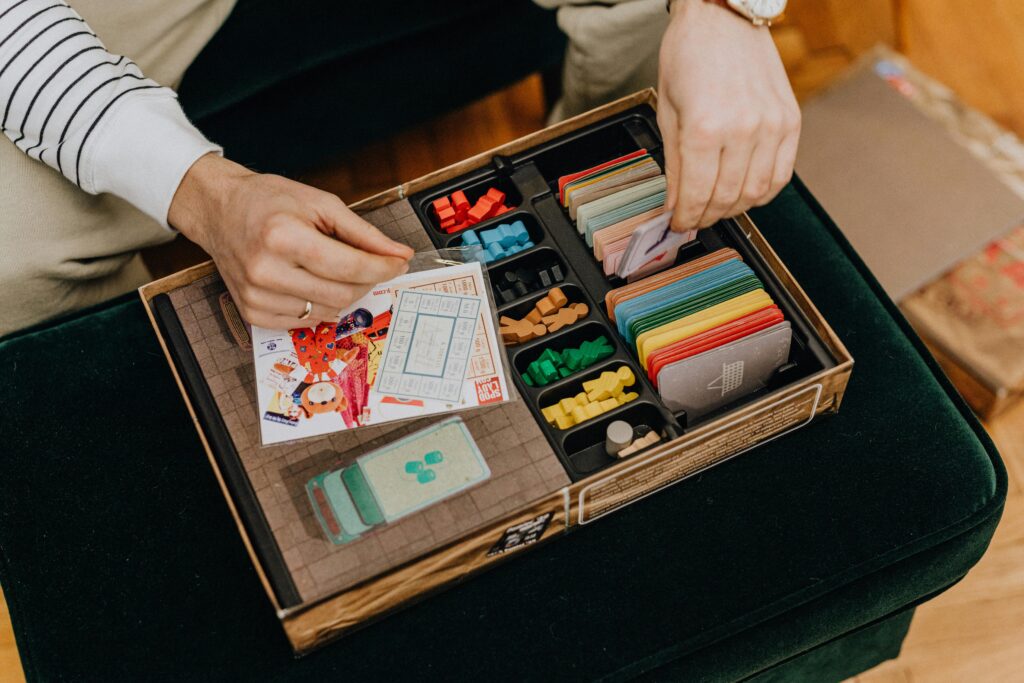

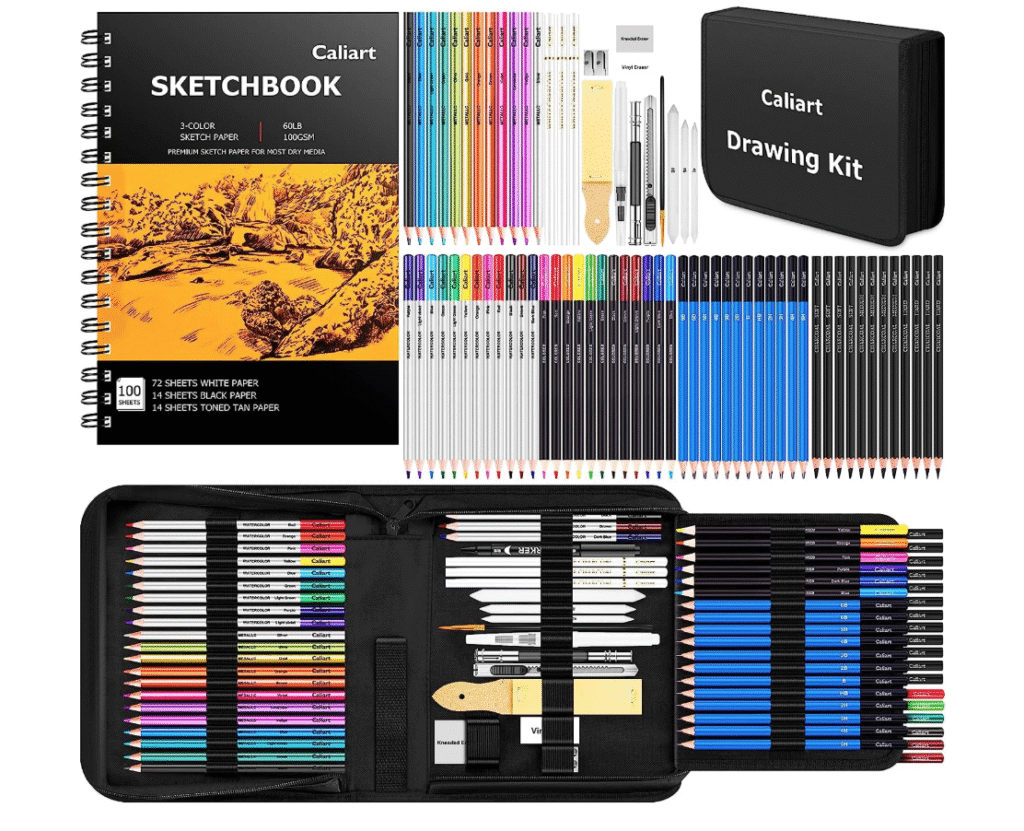


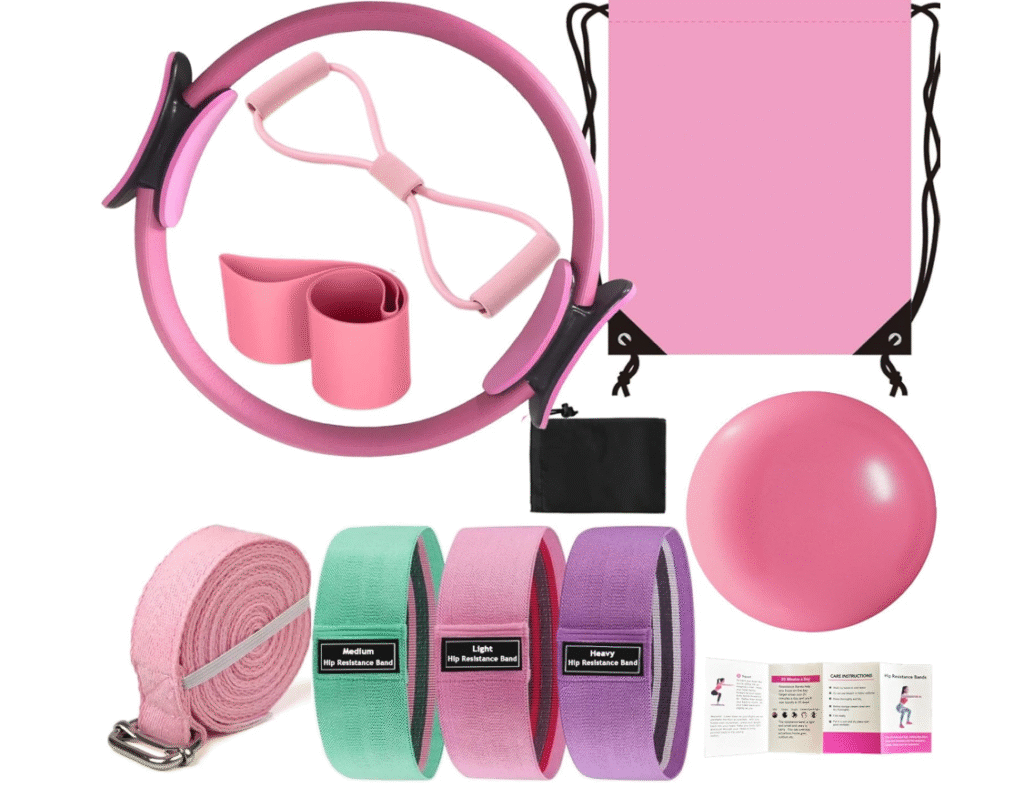
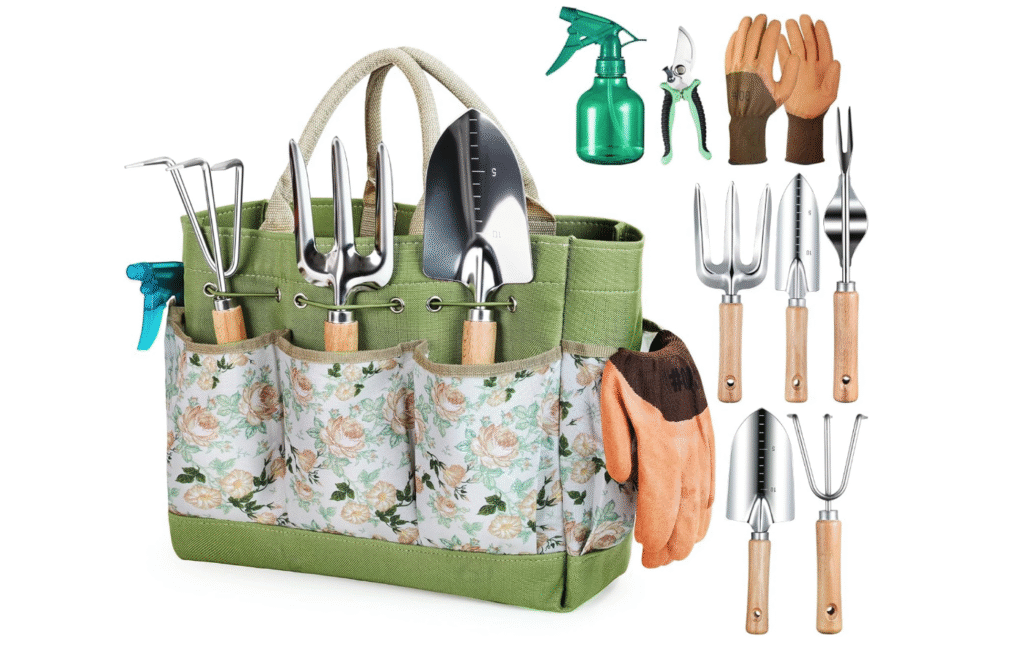
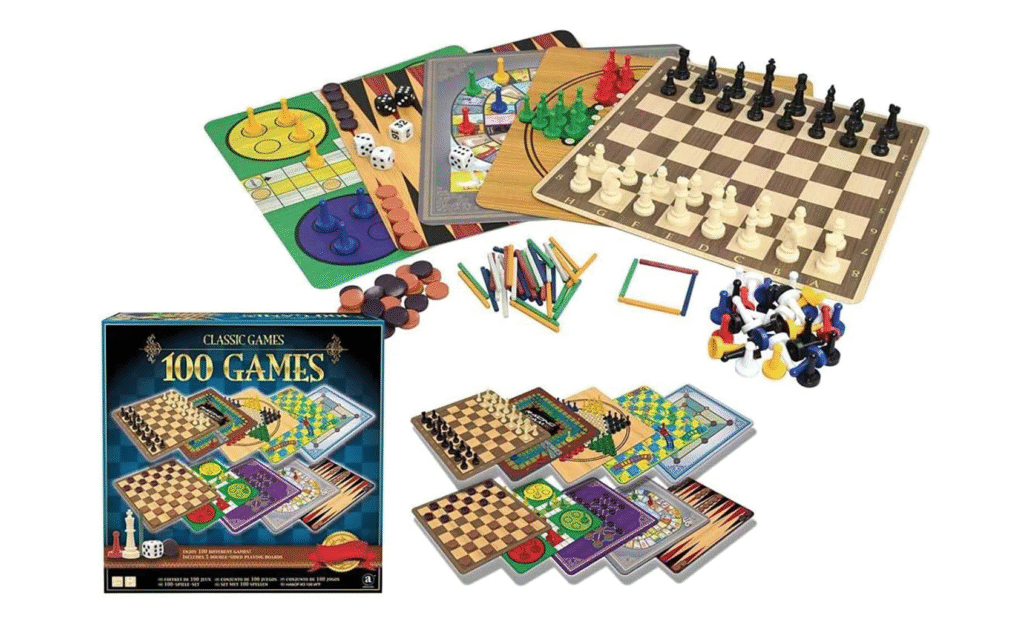







One Comment
[…] screen limits and stick to them. Turn off notifications.Keep your phone in another room when you need to focus. […]